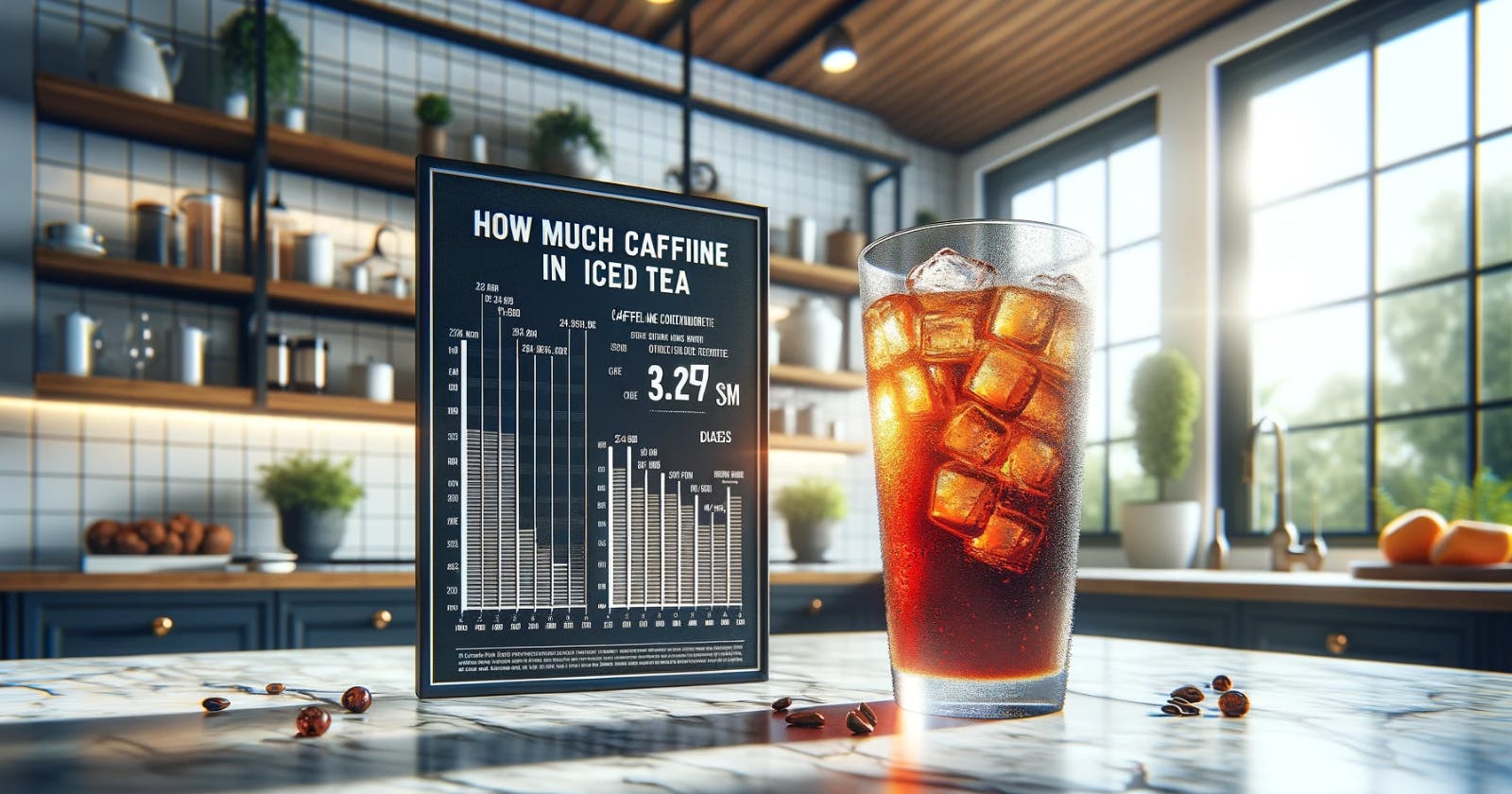Iced tea is a refreshing and popular beverage that many people enjoy, especially during the warm summer months. However, some people may wonder about the caffeine content in iced tea and how it compares to other beverages.
In this article, we will explore the topic of caffeine in iced tea and provide you with valuable information to help you make informed choices.
What is Caffeine?
Caffeine is a natural stimulant found in various plants, including coffee beans, tea leaves, and cocoa beans. It is a substance that can affect the body in several ways, such as increasing alertness, improving focus, and providing a temporary boost of energy.
However, consuming too much caffeine can also lead to side effects like jitteriness, anxiety, and difficulty sleeping.
Caffeine Content in Different Types of Iced Tea
The amount of caffeine in iced tea can vary depending on the type of tea used and how it is prepared. Here are some common types of iced tea and their approximate caffeine content:
Black Iced Tea
Black tea is a type of tea that is fully oxidized, giving it a rich, bold flavor. A typical 8-ounce serving of black iced tea contains around 47 milligrams of caffeine, which is similar to the amount found in a cup of brewed coffee.
Green Iced Tea
Green tea is made from unoxidized leaves, resulting in a lighter, more delicate flavor. A standard 8-ounce serving of green iced tea contains approximately 28 milligrams of caffeine, which is less than black iced tea but still provides a moderate caffeine boost.
Herbal Iced Tea
Herbal iced teas, also known as tisanes, are made from a variety of herbs, fruits, and spices rather than traditional tea leaves. Most herbal iced teas are naturally caffeine-free, making them a good choice for those who want to avoid caffeine altogether.
Factors Affecting Caffeine Content in Iced Tea
Several factors can influence the caffeine content in iced tea, including:
Brewing time: The longer the tea is brewed, the more caffeine is extracted from the leaves.
Tea leaf quality: Higher-quality tea leaves tend to have a higher caffeine content.
Brewing temperature: Hotter water can extract more caffeine from the tea leaves.
Tea-to-water ratio: Using more tea leaves per serving will result in a higher caffeine content.
Caffeine Intake Recommendations
While caffeine can provide benefits in moderation, it's important to be mindful of your intake. The recommended daily caffeine limit for healthy adults is around 400 milligrams, according to the Food and Drug Administration (FDA).
However, individual tolerance to caffeine can vary, and some people may be more sensitive to its effects.
Conclusion
In summary, the caffeine content in iced tea can range from low to moderate, depending on the type of tea and how it is prepared.
While caffeine can provide a temporary energy boost, it's essential to be mindful of your intake and choose the right beverage that aligns with your personal preferences and needs.
Whether you prefer a bold black iced tea or a refreshing herbal iced tea, understanding the caffeine content can help you make informed choices and enjoy your beverage responsibly.

